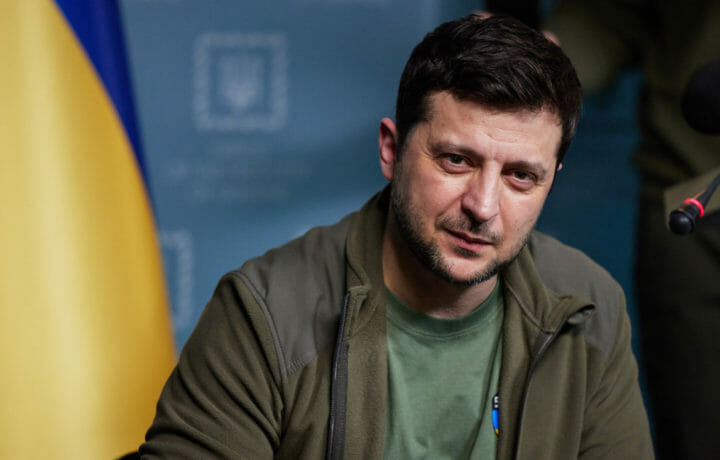Over the course of the past three weeks, international media has filed a number of stories surrounding attempts by Russia to assassinate Ukrainian President Volodymyr Zelensky which were foiled by the Ukrainian government.
Russians tip-off Ukraine about Zelensky
The success on the part of Ukraine in keeping their President safe is allegedly due to Russian personnel from within the Federal Security Service (FSB) having tipped off the Ukrainians, according to Ukrainian National Security and Defense Council chief, Oleksiy Danilov.
While these reports to date have been unsubstantiated, they remain very credible, especially given they landed as western intelligence reports highlighted how the Russians had created lists of individuals to be detained or killed. Indeed, Zelensky himself publicly acknowledged that he is number one on Russia’s list, with his family sitting in the number two slot.
Earlier this month, Zelenskyy’s aide, Mikhail Podolyak commented to the Ukrainian media outlet Pravada, “Our foreign partners are talking about two or three attempts – I believe that there were more than a dozen such attempts.”
Ukraine sources within Russian intelligence and security entities
Podolyak continued how Ukraine understands intelligence and counterintelligence and has access to the Russian plans and that these teams were tracked and liquidated.
Whether the “source” is a disaffected FSB officer providing information or a recruited asset of the Ukrainian intelligence apparatus is not shared, though plausible. The message being sent by Podolyak is that Ukraine has sources within FSB, with direct actionable intelligence at a sufficient level of detail to allow the Ukrainians to identify, intercept, and render neutral the threat of assassination teams dispatched to Ukraine. A bold statement and one which may have caused a cringe or two among those thinking this may not have been the best OPSEC.
One of the primary responsibilities of any offensive counterintelligence program is to recruit sources within adversarial services.
Let’s assume there is no recruited source.
Over the years there has been ample opportunity for a non-adversarial liaison by the intelligence and security entities of Ukraine and the Russian Federation on a variety of topics, while also having a robust adversarial relationship where each side tries to recruit the others’ officers. Those liaison contacts may have provided a disaffected Russian FSB officer to open a communications channel in quiet, yet effective protest on #PutinsWar.
It has been widely shared that Putin isn’t thrilled with the FSB. The FSB, was given the responsibility by Putin to provide ground-truth intelligence given Ukraine’s status as a former state of the Soviet Union.
Additional, widespread reporting tells us Sergei Beseda, head of the FSB’s foreign intelligence branch and his deputy Anatoly Bolukh, were interrogated, and then placed under house arrest. Other media reports indicate that the duo was simply questioned and remained in their positions. Whether the two are working from home or the office, they are being subjected to a good deal of unwanted attention.
Thus it is both as much probable as it is possible that an FSB officer reached out voluntarily to the Ukrainians.
A third possibility exists.
It is entirely possible that the Ukraine intelligence may simply be playing mind games with the FSB and learned of the assassination attempts via a partner country’s intelligence or Russian operatives taken off the streets of Kyiv.
Putin Not Happy with FSB
Whichever of the three avenues utilized by Ukraine to neutralize the Russian threat, the FSB is in the hot seat. They have Putin breathing down their neck.
They are now obliged to take resources and point them to investigate both their pre-invasion intelligence “failures,” as well as the very real threat that within their most trusted entity, an active inside source exists.
What we do know is that Zelensky remains visible and accessible, and the Russian invasion of Ukraine is not going according to plan.




